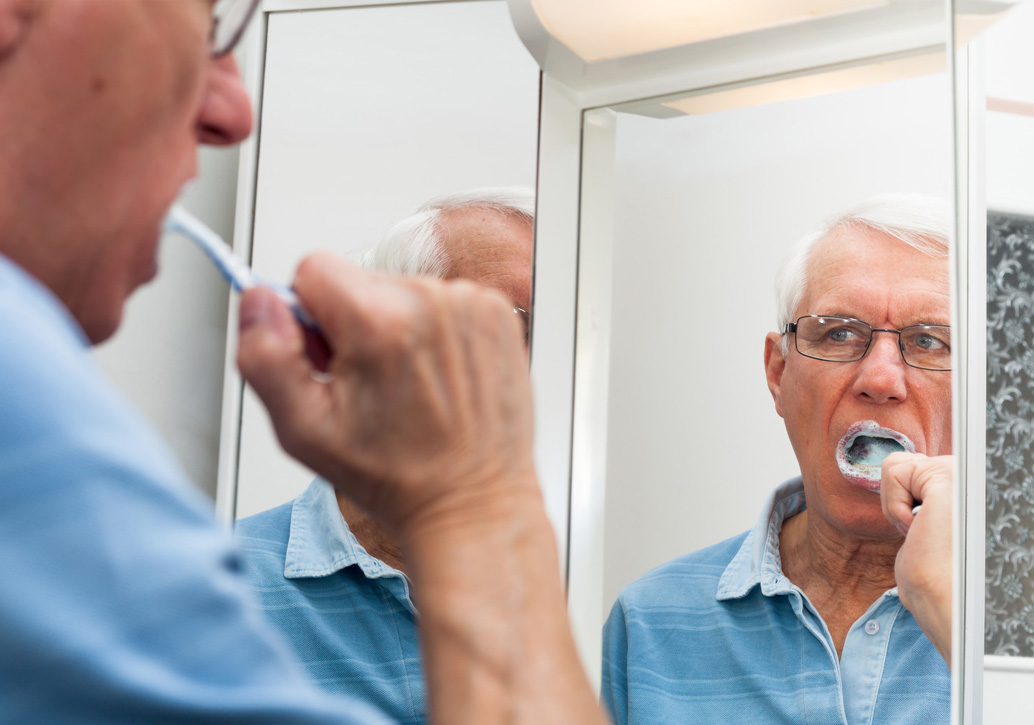(And how to prevent them)
By Mary Bart
As a care recipient, there can be some risks involved in living alone. Here are some practical problems and solutions to help you feel safer and more comfortable in your home.
1. Personal hygiene
Regular bathing, brushing your teeth, and washing and cutting your hair can become less frequent if there is no one at home to consider.
Solution:
Play a game with yourself that the “Clean Police” are coming over today to check on you. This means in order to be ready for them, you need to:
• Have a bath or sponge bath.
• Brush your teeth and hair at least once a day.
• Know that your cleanliness will not only make you feel better, it will be a healthier way to go through your day.
2. Dirty clothes
Wearing dirty clothes can become a habit. “Who cares if my favourite shirt has gravy and coffee stains on it? Nobody’s here to see it.”
Solution:
Wearing clean clothes is a sign that you are mentally and physically able to live on your own. When you start to look and smell dirty, that is the time to “clean up your act”. Don’t let your appearance be the reason which makes others think that you are no longer able to live alone. Here are a few tips to help.
• Plan your weekly wardrobe. Lay out the clothes that you will wear each day. If you plan to wear the same top two days in a row, make sure you don’t wear it on the third day.
• Look through your closet for things that you have not worn in a while. If you still like them, wear them. If they don’t fit or have gone out of style, donate them.
• Before going to bed, put the day’s clothes in the laundry hamper for washing.
• After a meal, check your clothing. Did something spill on your shirt or pants? If so, change it right away.
• Before you head out of the house, check yourself. Do you look clean? Do you look “presentable”? Looking “presentable” is also a way to visually give the message that you are “in charge of your life and that you are not going to be a victim of abuse.”
3. Victimization or abuse
If you live alone then you may be an “easy target” to be taken advantage of, perhaps by family members, new friends or strangers.
Solution:
Get educated about the forms of abuse and how to prevent them. There are many resources in public libraries and on-line that will help get you started. One on-line resource is the website by “Elder Abuse Ontario”. On their site (http://www.elderabuseontario.com/), they list many tips on preventing elder abuse, including these ones:
• Do not lend your bank card or give your PIN number to anyone.
• Use direct deposit for all cheques that you receive, i.e., pension cheques (OAS, CPP).
• Have bills automatically paid from your bank account such as your telephone or utilities bills.
• Keep your home secure and do not leave valuables or large amounts of cash lying around.
• Think carefully before making changes to your living situation such as moving in with family or friends or having someone move into your home, especially if they promise to take care of you.
• Plan for your future while you are still independent and mentally capable. Have a Power of Attorney or a Living Will to express how you want to address your finances and health care decisions to avoid confusion and family problems later.
• Maintain contact with loved ones and connections with friends, family and support networks.
• Stay active in the community – volunteer, go on outings with friends and visit neighbours. Isolation increases vulnerability to abuse.
• Seek alternative options for care. Do not rely only on family members for your care and social life.
• Educate yourself about your rights and the signs to recognize elder abuse.
4. Alcoholism
Solo drinking is never a good idea, and being alone means that there are no social cues to help you limit your consumption.
Solution:
• Record how much you are drinking on a daily basis. Keeping a diary may be shocking, but it will let you know that perhaps you are drinking too much.
• Have at least one alcohol free day each week.
• Don’t drink on an empty stomach and avoid salty foods; they just make you thirstier.
• Create a goal to reduce your drinking; even one less glass a day will make a difference.
• Don’t have too much booze in the house. The more you have, the more you consume.
• Drink more water or a non-alcohol beverage that you like.
• Don’t drink alone and having a pet in the house does not count as company.
• Seek professional help if you are not able to reduce your drinking habits on your own.
Mary Bart is the chair of Caregiving Matters, an Internet-based charity that offers education and support to family caregivers.












